"SEC | S20W4: "ROLE OF AGRICULTURE IN THE ECONOMY"
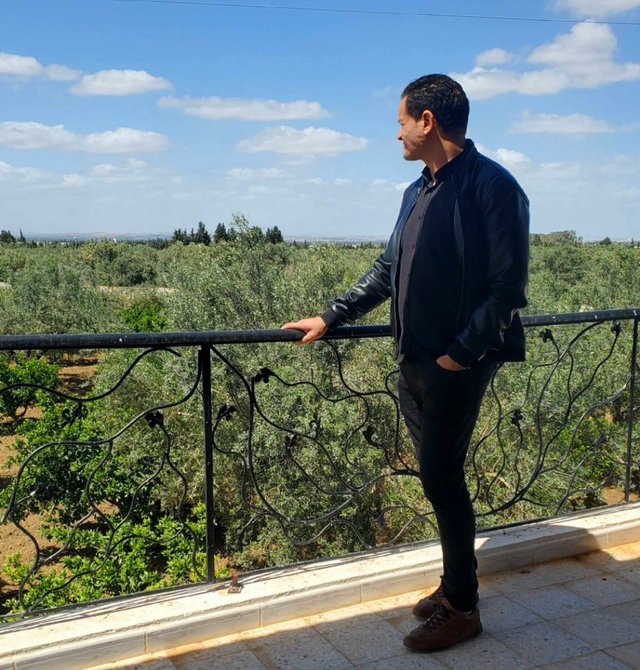
Hello steemians,
Today I am participating in the SEC S20W4 - Role of Agriculture in the Economy competition, organized by @xkool24. As a Tunisian citizen, I am particularly sensitive to the importance of agriculture in our national economy. This sector not only represents a key source of income for many rural families, but it is also a central pillar of our overall economic development. In this contribution, I will explore in detail the crucial role that agriculture plays in Tunisia, both socially and industrially, focusing on an emblematic crop of our country, the olive tree, while addressing the challenges faced by our farmers as well as the government initiatives put in place to overcome them.
a. Explain the social and industrial roles of agriculture in your country, sighting one of the main grown crop.
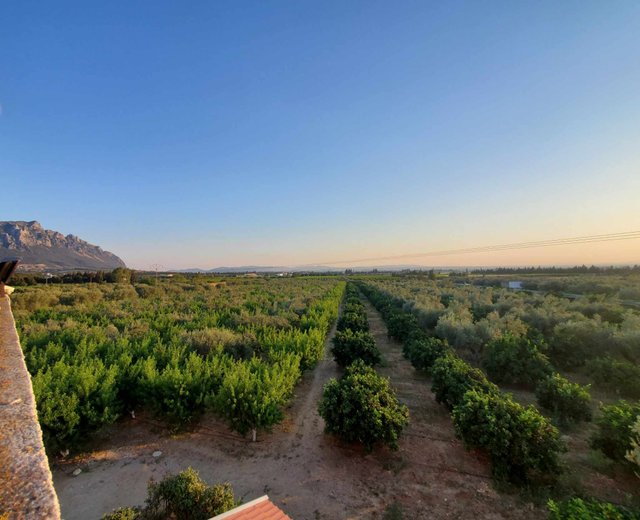
In Tunisia, I see that agriculture plays a vital role not only for the national economy, but also for the social fabric of many rural areas. It is much more than just an economic sector: it is at the heart of the identity of these communities, where it helps preserve traditional know-how passed down from generation to generation. I see that in these rural areas, agriculture is often the main, if not the only, source of income for many families, especially in regions where other forms of employment are rare. This is why it occupies a central place in the daily lives of the inhabitants of these regions.
When I think of agriculture in Tunisia, I immediately think of the olive tree, which is a true icon of our agricultural landscape. The olive tree is not just a tree, it is a crop deeply rooted in our history and heritage. It symbolises resilience, as it can thrive even in harsh climatic conditions, such as those I frequently see in some arid regions of Tunisia. The olive oil produced from these olive trees is of exceptional quality and is recognized beyond our borders. I know that it represents a major economic asset for our country, especially through exports that bring in valuable foreign currency.
What I observe is that this olive oil production not only keeps agricultural traditions alive but also improves the economic conditions of rural families. During harvest periods, many people find work in picking olives, transporting them, and in the oil mills where they are processed. These jobs, although often seasonal, bring welcome financial stability to thousands of households.
b. How has this main grown agriproduct helped in reducing poverty and as well promote rural development in your country?
The olive tree, in particular, has played a crucial role in the fight against poverty in Tunisia. I have seen that in many rural areas, olive growing is much more than just an agricultural activity: it is a real source of economic stability for thousands of families. Every year, when the harvest season begins, I notice how this activity mobilizes a large number of workers. Whether it is for picking olives, transporting them to the mills, or transforming them into oil, thousands of people find temporary but vital employment to support themselves.
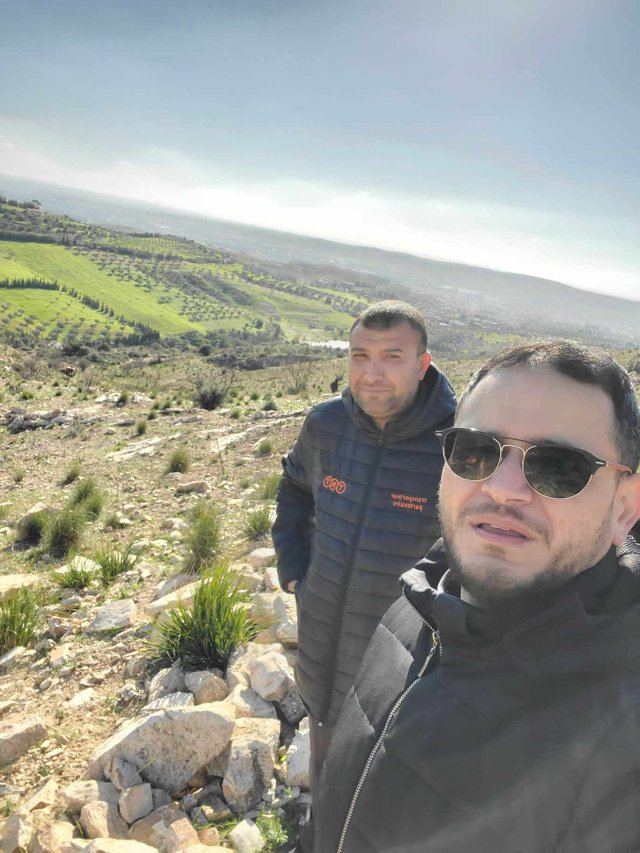
This seasonal work, although it only lasts part of the year, provides many families with an income that allows them to cover essential expenses, such as food, children's education or health care. I also see that this activity contributes to improving the living conditions of rural populations, in particular thanks to the income generated by the sale of olive oil on local and international markets. This financial windfall allows many households to escape poverty at least temporarily and to have a certain financial security.
I have also observed that the expansion of olive groves and the improvement of production techniques have had a beneficial effect on the development of rural infrastructure. In several regions, the construction of new roads has facilitated access to production areas, thus allowing the transport of harvests more quickly to markets. Similarly, I note that improving public infrastructure, such as schools and health centers, is often linked to the income generated by olive growing.
c. What are the main challenges facing your country's top crops (e.g., cocoa, palm, maize, wheat, rice, etc.) in terms of economic impact?
I see that the main challenges facing Tunisia’s dominant crops, such as olives, wheat and citrus fruits, are closely linked to increasingly unstable climatic conditions. Frequent droughts, which I have often observed, pose a real problem for farmers. The scarcity of water resources makes it difficult to irrigate crops, and this directly affects yields. I see that these droughts, combined with more intense heat waves, compromise plant health and significantly reduce harvests.
In addition to climatic challenges, I also see that Tunisian producers are facing increasing economic pressure due to international competition. On world markets, Tunisian olive oil although renowned for its quality, faces tough competition from other large producers, particularly Spain and Italy. For small local producers, it becomes difficult to compete in terms of price, especially when production costs increase due to climatic hazards and aging agricultural infrastructure.
I also note that low investments in modernizing agricultural infrastructure are making the situation worse. Poorly maintained or non-existent roads make it difficult to transport produce to markets, increasing logistics costs for farmers. In addition, water management remains a major challenge. I observe that many farmers do not have access to modern irrigation systems, making them particularly vulnerable to prolonged droughts. This directly affects crop productivity, and therefore, farmers’ incomes.
d. What current or past government initiatives are boosting agricultural productivity in your country?"
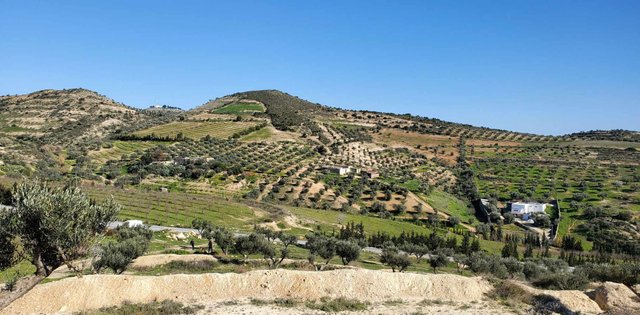
In response to the challenges I have seen in Tunisian agriculture, the government has indeed implemented several initiatives to boost productivity and support farmers in their efforts. One of the most important measures I have observed is the provision of subsidies to encourage the adoption of modern agricultural technologies. These subsidies allow farmers to acquire equipment that was previously inaccessible to them due to its high cost. For example, I have seen many producers benefit from subsidies for the purchase of tractors, crop treatment systems or digital farm management tools. This allows them to modernize their practices and improve their productivity while reducing their costs in the long term.
In addition, the government has set up microcredit programs specifically designed for smallholder farmers. I have seen that these microcredits offer farmers the opportunity to invest in better quality seeds which can lead to larger harvests that are more resilient to harsh climatic conditions. These credits also allow farmers to access innovative technologies, such as modern irrigation systems which can help better manage water resources.
One area where I have seen significant progress is water management. In a country like Tunisia where water is a scarce and precious resource the government has understood the importance of optimizing its use. I have observed that efforts have been made to install more efficient irrigation systems, such as drip irrigation especially in the most drought-affected regions. This system allows for more targeted and more economical use of water avoiding waste while ensuring better hydration of crops.
e. What solutions can enhance agricultural productivity and growth in your country?
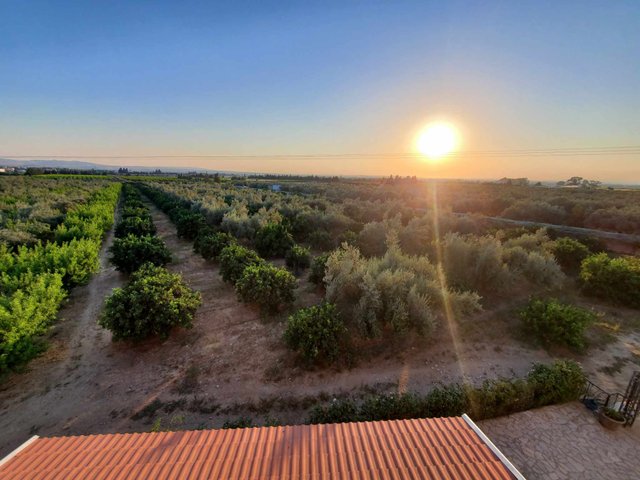
To improve agricultural productivity in Tunisia, I believe it is imperative to focus on several key aspects. First, I believe it is essential to continue investing heavily in modern agricultural technologies. These technologies, such as drip irrigation allow for more efficient use of water which is vital in a country like Tunisia where water resources are limited. I have observed that this method of irrigation helps minimize waste while ensuring that crops receive the exact amount of water they need to grow.
Furthermore, I am convinced that using drones to monitor crops could transform agriculture in Tunisia. Drones can be used to monitor fields in real time, detect diseases or pests at an early stage and help optimize the application of fertilizers or pesticides. This not only maximizes yields, but also reduces costs and environmental impact. I believe that adopting these technologies could really make a difference for Tunisian farmers by making them more competitive in the global market.
At the same time, I strongly believe that developing rural infrastructure is equally crucial. I have seen how difficult it can be for farmers to transport their produce to markets especially in the most remote areas where roads are poor or non-existent. Building adequate roads would not only make it easier to transport produce, but also provide farmers with access to services and resources, such as seeds, equipment, or even education. It would also improve living conditions in these areas by making it easier for farming families to access healthcare and education.
I also believe that building more modern storage facilities is essential. Too often, I have seen farmers lose part of their harvest due to the lack of adequate storage facilities. With well-equipped warehouses or silos, they could store their products for longer, wait for periods when prices are more favorable on the markets, and thus maximize their income.
Finally, in my opinion, continuous training of farmers on new techniques and methods of sustainable production is essential. The agricultural sector is evolving rapidly with new innovations and more ecological practices. By training farmers on the latest technological advances and teaching them to diversify their crops, we can ensure a more resilient and environmentally friendly agriculture. This, in my opinion, would not only improve productivity in the short term, but also build a solid foundation for long-term sustainable growth in the Tunisian agricultural sector.
Thank you very much for reading, it's time to invite my friends @graceleon, @simonnwigwe, @josepha to participate in this contest.
Best Regards,
@kouba01

Upvoted. Thank You for sending some of your rewards to @null. It will make Steem stronger.
Congratulations on bringing a quality content. You have earned a positive vote from team 2, and it is delivered by @ashkhan.
Many Blessings...🙏🏻
The role that agriculture play in a country is so vital for the survival of a country as agriculture help country not to be dependent of another country for survival. I happy that to hear that agriculture is well practice in Tunisia. Thank you for the invite and best of luck to you.
Observations and suggestions:
Nice to know that olives are traditionally cultivated in Tunisia. Since olives can be grown even in harsh climates, I don't think this will put the farmers at risk. Your country's olive oil is very popular sir. I know that olive trees are also very beneficial for the environment. I hope Tunisia's climate change will make a lot of progress in agriculture. Your post was valuable sir. It will be very helpful for those who work with farmers.
Feedback: